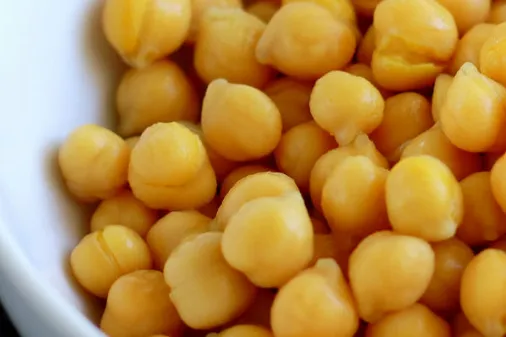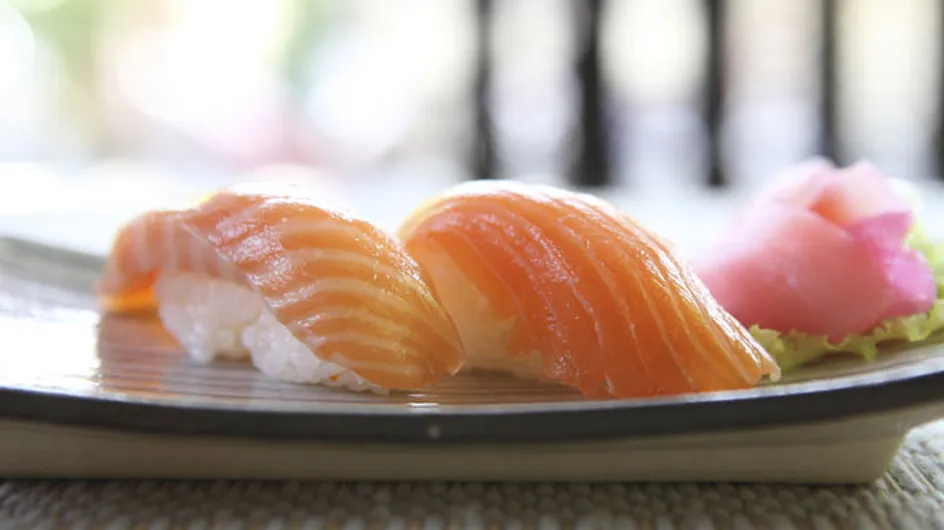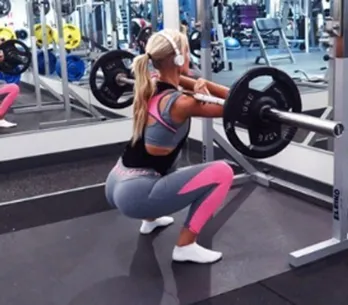The human anatomy is mostly made up of proteins - your muscles, your organs and your immune system are all made up of this essential molecule. The body uses these proteins to make specialised particles called amino acids, all of which are vital to human health. The dilemma? Women are often ignoring the advantages and are dismissing protein as an unnecessary supplement. Tsk, tsk. Time to get our protein awareness in check girls...
A great deal of women believe proteins are rich in fats or high in calories compelling them to reduce their protein intake and effectively harming their wellbeing. What may come as a surprise is that vegetables and fruits aren’t far off the calorie radar from protein-rich foods so there's no reason to disregard this fundamental nutrient from our diets.
When women give protein the chop, they fall victim to malnourishing their bodies. Spare yourself the diet plan girls - eating the recommended amount of protein or even doubling up will actually help you melt away the fat even when you’re not active. So with your metabolism buzzing along at high speed that seasonal pumpkin latte can be burnt off without even moving a muscle!
You can get proteins from a whole host of foods with the best sources coming from fish, meat, dairy and beans.
The cumulative effect of protein has the power to keep you trim. So next time you buy a salad don’t presume that you shouldn’t have anything else. Leafy greens, albeit very nutritious, can’t be compared to a slab of grilled chicken on top. The second your body takes in protein it starts breaking it down, but at a much slower rate than other foods, burning more calories and keeping you fuller for longer.
And sadly, that bucket of KFC isn’t going to cut it!
Protein based ‘fast foods’ are almost always fried or processed meaning our traditional sources of protein aren’t ‘grab and go’ - a major inconvenience come lunch time.
Essentially, we are making poor decisions based on little knowledge of this superpower nutrient. And no, it’s not just for bodybuilders, ladies!
Time for a little health ed. With the help of Cassandra Barns, Nutritional Therapist at The Nutri Centre we’ve rounded up the the bottom-line facts every girl needs to know about protein...
1. It doesn't make you fat
"Protein can be used for energy when carbohydrates and fats are not available, but it is not stored as fat unless consumed in excess." Too much is when you're consuming three times the recommended daily intake, so unless you're high following an endurance fitness regime, enjoy those protein-packed foods.
2. Full for longer
Protein is the answer to help keep a naughty appetite at bay. "Protein-rich foods are broken down more slowly and therefore stay in the stomach longer, making us feel fuller. Ensuring we have a serving of protein-rich food (meat, fish, eggs, beans and lentils, nuts and seeds) with every meal can therefore be helpful for controlling appetite and for weight management."
3. Know the guidelines
"For adults, guideline recommendations for protein intake are about 0.4g of protein per pound ideal body weight per day. This means that someone whose ideal weight is 130lbs should consume between about 45–50g of protein a day. Recommended amounts increase in pregnancy and can increase when training or trying to build muscle."
4. Not just for muscles
"Protein is essential not only for muscles but for all growth and repair in the body. Even when we have stopped growing in height, we need protein for replacing and repairing cells and tissues that have been damaged. This process takes place constantly – for example, the tissue lining the digestive tract is replaced every two to four weeks! This also means that protein is particularly vital for healing from an injury or an operation, for example."
5. Super immunity
"Protein is used for the formation of antibodies – substances produced by our immune cells to help them identify foreign particles such as bacteria and viruses. So to have a healthy immune system, we need sufficient protein."
6. Protein helps carry oxygen around the body
"Haemoglobin, which carries oxygen around the body in red blood cells, is a protein." Science lesson over.
7. Detoxing essential
"Protein is used by the liver for detoxification. Some of the individual amino acids, the components of protein, are attached to toxins to help excrete them from the body. For this reason, fasting or following a low-protein ‘detox’ diet may not be the best way to support detoxification or cleansing." Hangover cure solved!
8. Brain food
"Protein supports our brain function and memory. Some of the individual amino acids, such as glycine and serine, act as neurotransmitters – the substances that allow our brain and nerve cells to communicate with each other. Some others are converted to neurotransmitters – for example, tryptophan is converted to serotonin, an important neurotransmitter for mood. "
9. Vegans beware
"Vegans in particular need to pay attention to getting enough protein. With few exceptions, protein is found in the highest concentration in animal foods: an average serving of chicken breast can contain around 25 to 30g of protein, whereas an average serving of brown rice will provide only around 6g of protein, and 100g of cooked lentils around 9g.
"Vegans should aim to eat a good variety of pulses (beans and lentils), nuts and seeds in addition to vegetables and whole grains every day."
10. Too much can be bad
"While insufficient protein may cause problems, too much protein is not good either. A very high level of protein intake over a significant period of time may cause harm to the kidneys, although some sources say this is only likely to be a problem if there is already kidney disease present.
"Amounts that could potentially cause a problem are protein intakes of over around 35% of calorie intake, or around 175 to 200g of protein a day for a 2000–2500 calorie diet. However, these amounts would normally only be achieved on a high-protein, low-carbohydrate diet, by someone who is eating several large servings of meat every day, or by individuals using a lot of protein supplements for training or muscle gain."
The key is in the balance girls! Will you be rethinking your low-protein diet now?
Are you getting enough in your everyday diet? Tweet us @sofeminineUK
Check out these high-protein foods...
 © Getty Images
© Getty Images
















